NHL Playoff Breakout Players
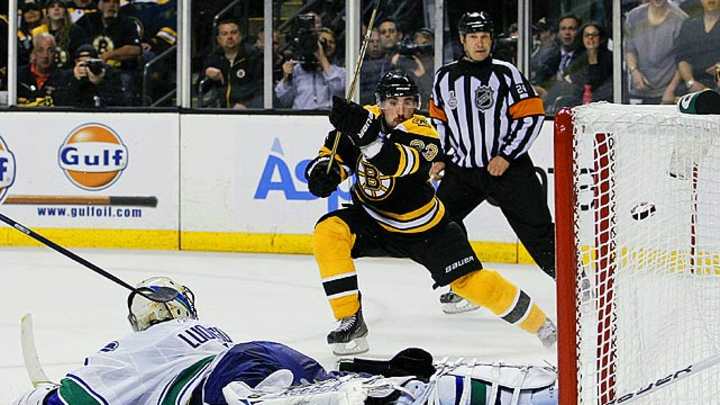
NHL Playoff Breakout Players
Brad Marchand

Boston's third-round pick in 2006 established a reputation as a productive agitator during the Bruins' run to the Stanley Cup Final. The 23-year-old rookie, who scored 21 goals and 41 points during the regular season, produced a team record 11 tallies and 19 points in the playoffs, including five in the Cup final vs. Vancouver. He also gained a measure of notoriety by brazenly punching Daniel Sedin of the Canucks in the head four times during Game 6 of the feisty, hotly contested series for the silverware. Here are 12 more NHL players who made names for themselves or had their "coming out party" in the postseason.
Sean Bergenheim
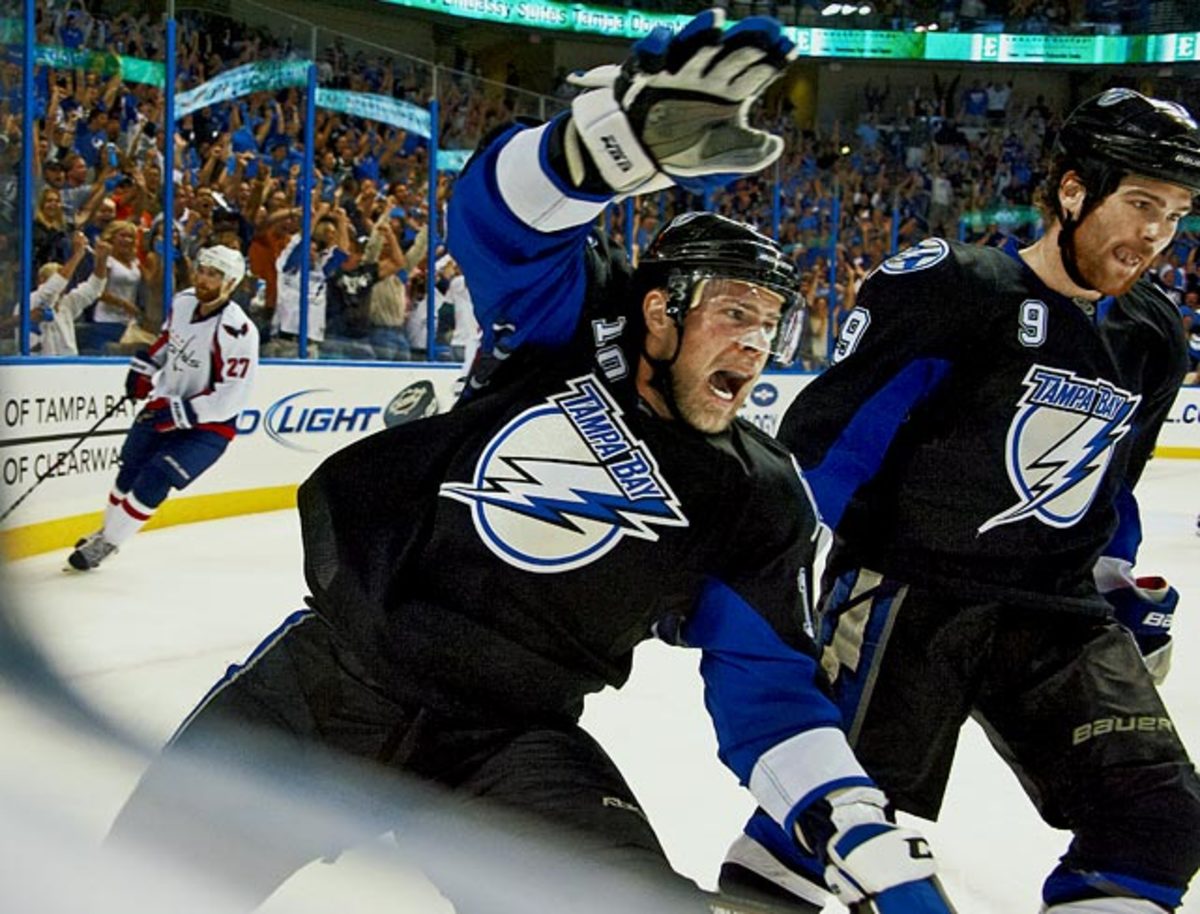
A first round pick (22nd overall) by the Islanders in 2002, Bergenheim spent parts of five nondescript seasons in New York before signing a one-year, $700,000 deal with Tampa Bay as a free agent in the summer of 2010. His 2010-11 season was modest (14 goals, 29 points in 80 games), but as soon as the playoffs -- the first of his career -- started, the Finnish winger, 27, began making his presence felt with regularity. Playing on a highly effective line with Dominic Moore and Steve Downie, Bergenheim scored a league-leading eight goals and 10 points in 13 games (as of this writing, that's two games into the Eastern Conference Final) and was a key figure in Tampa Bay's rally from a three-games-to-one deficit to eliminate the Penguins in the first round.
Claude Giroux

Drafted by the Flyers 22nd overall in 2006, Giroux was first known mostly for GM Bobby Clarke's inability to remember his name while announcing his selection. The swift-skating winger didn't reach Philly to stay until 2008, and after showing promise in 42 regular-season games (9 goals, 27 points, plus-10) as a rookie, the 20-year old Giroux had two goals and five points in six postseason matches against the eventual Cup-champion Penguins. The following season, after scoring 16 goals and 47 points in 82 games, he fully blossomed in the spring. His shootout goal against the Rangers on the final day of the regular season put the Flyers in the playoffs where he scored 10 goals and 21 points, had huge first-round series vs. the Devils, and helped Philly reach the Stanley Cup Final.
Cam Ward
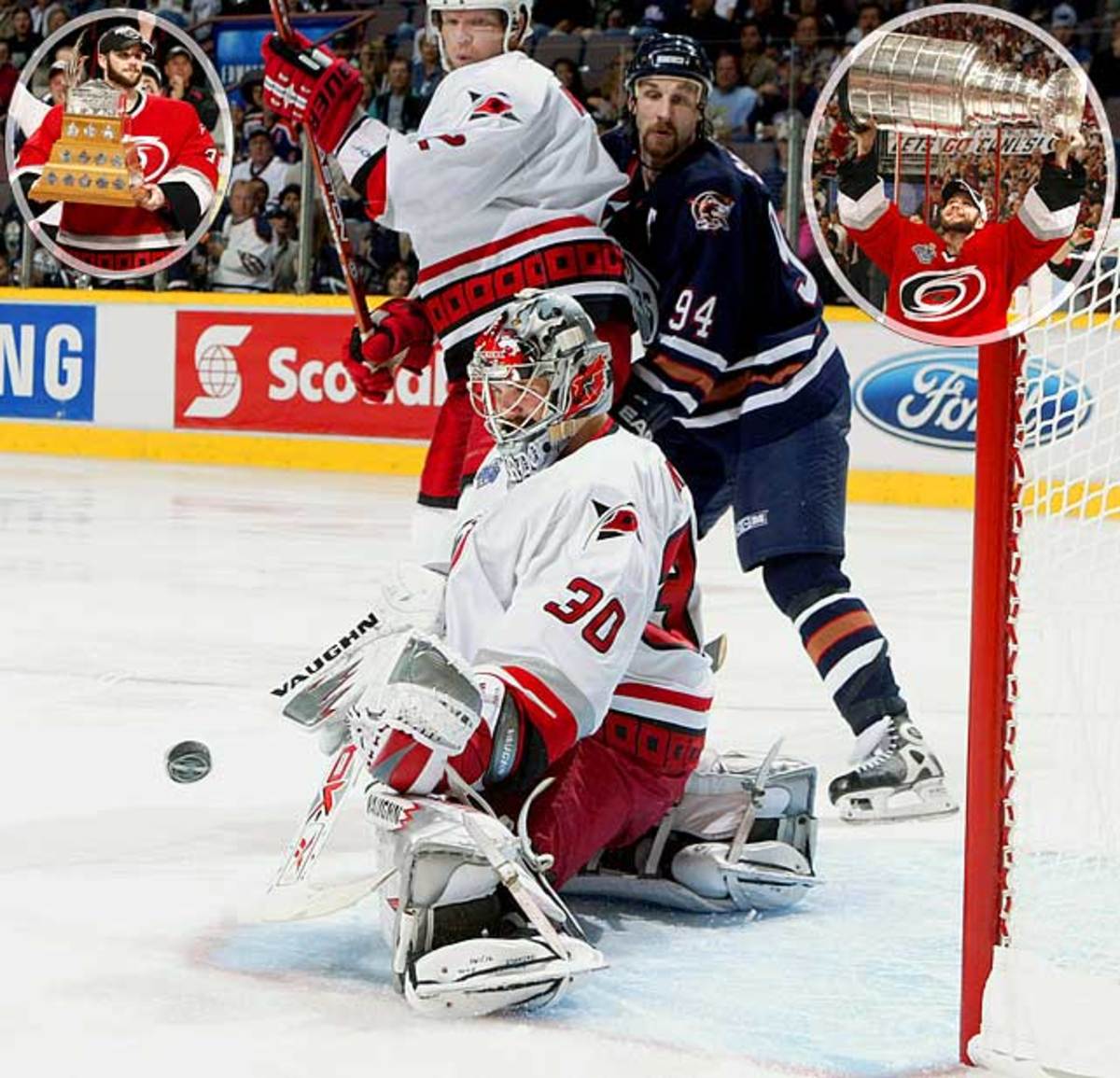
Carolina's first-round pick (25th overall) in 2002 spent his rookie season backing up Martin Gerber with middling results (14=8-2, 3.68 GAA, .882). But when Gerber faltered in the first round of the playoffs, Ward rode to the rescue, earning the Conn Smythe Trophy (he was the first rookie since 1987 to win it) while backstopping the Hurricanes to their first Stanley Cup. The 22-year-old went 15-8 with a sparkling 2.14 GAA and .920 save percentage and held off a three-games-to-one comeback by the Edmonton Oilers in the Cup final. In 2011, Ward earned his first All-Star nod.
Chris Drury

A Hobey Baker-winner and NCAA champion at Boston University, the undersized 22-year-old center's rookie season with Colorado (20 goals, including nine game-winners, 44 points, plus-9) earned him the Calder Trophy. On the big stage of the playoffs, Drury cemented his reputation as a clutch hockey player and leader. (He already enjoyed legendary status for pitching his Trumbull, CT, baseball team to the Little League World Series title in 1989.) Drury scored six goals in 19 postseason games, with four of them game-winners (a rookie record he shared with Claude Lemieux) as the Avalanche reached the Western Conference Final before falling to Dallas in seven games. Drury's OT goal against the Stars tied the series at 2-2 after the Avs had lost the first two games, and he won Game 5 before Dallas rallied to advance to the Cup final.
John Druce
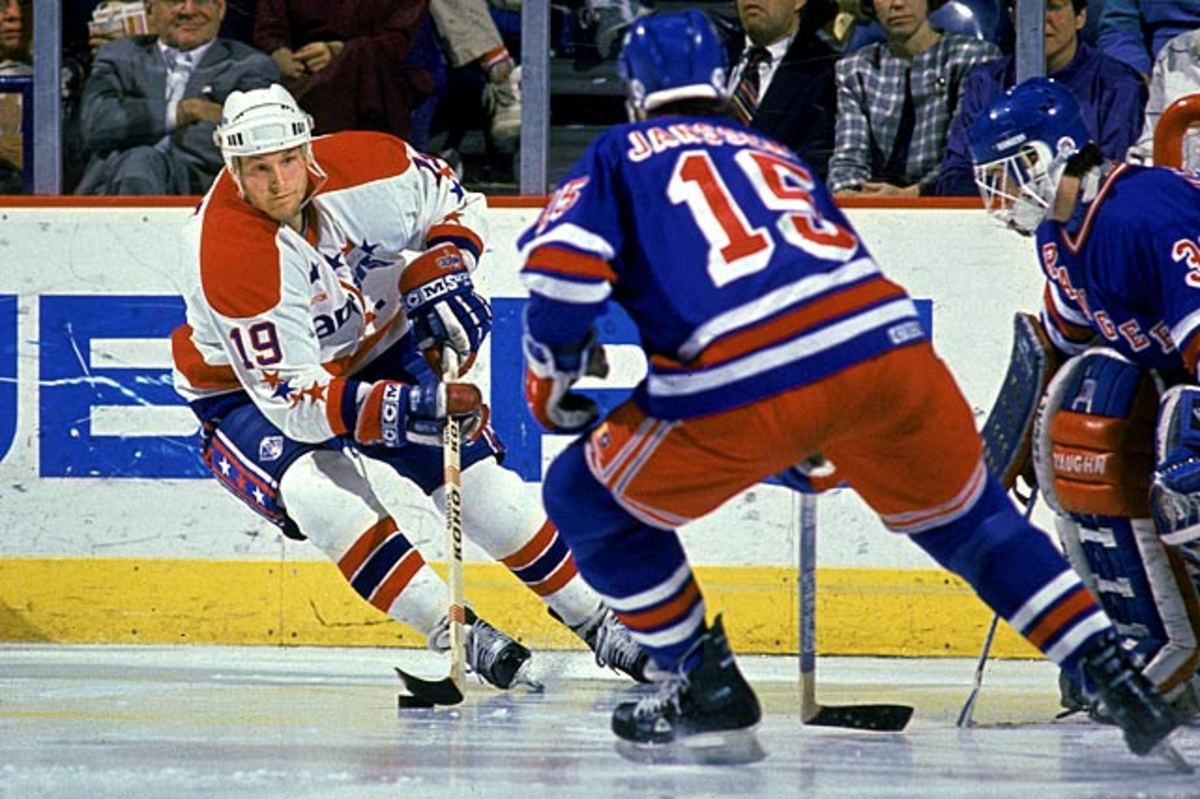
A classic flash in the pan, the winger was Washington's second-round pick (40th overall) in 1985. After scoring eight goals as a rookie in 1988-89, and another eight in 45 games as a second-year player, Druce exploded during the 1990 postseason: 14 goals and 17 points in 15 games as the surprising Capitals knocked off the Devils and Rangers to reach the conference final. He played another eight seasons in the NHL, his career peaking at 22 goals and 58 points in 1990-91, he never became the scoring threat suggested by his famous postseason outburst.
Patrick Roy

Yet another legendary example out of Montreal, Roy was a highly regarded prospect, but his rookie season (23-18-3, 3.35 GAA) did not suggest the Hall of Fame greatness to come. Yet in the playoffs that spring, he took over the starting role and earned the Conn Smythe Trophy while going 15-5 with a stunning 1.92 GAA while carrying the Habs to the Stanley Cup and earning the moniker St. Patrick.
Claude Lemieux
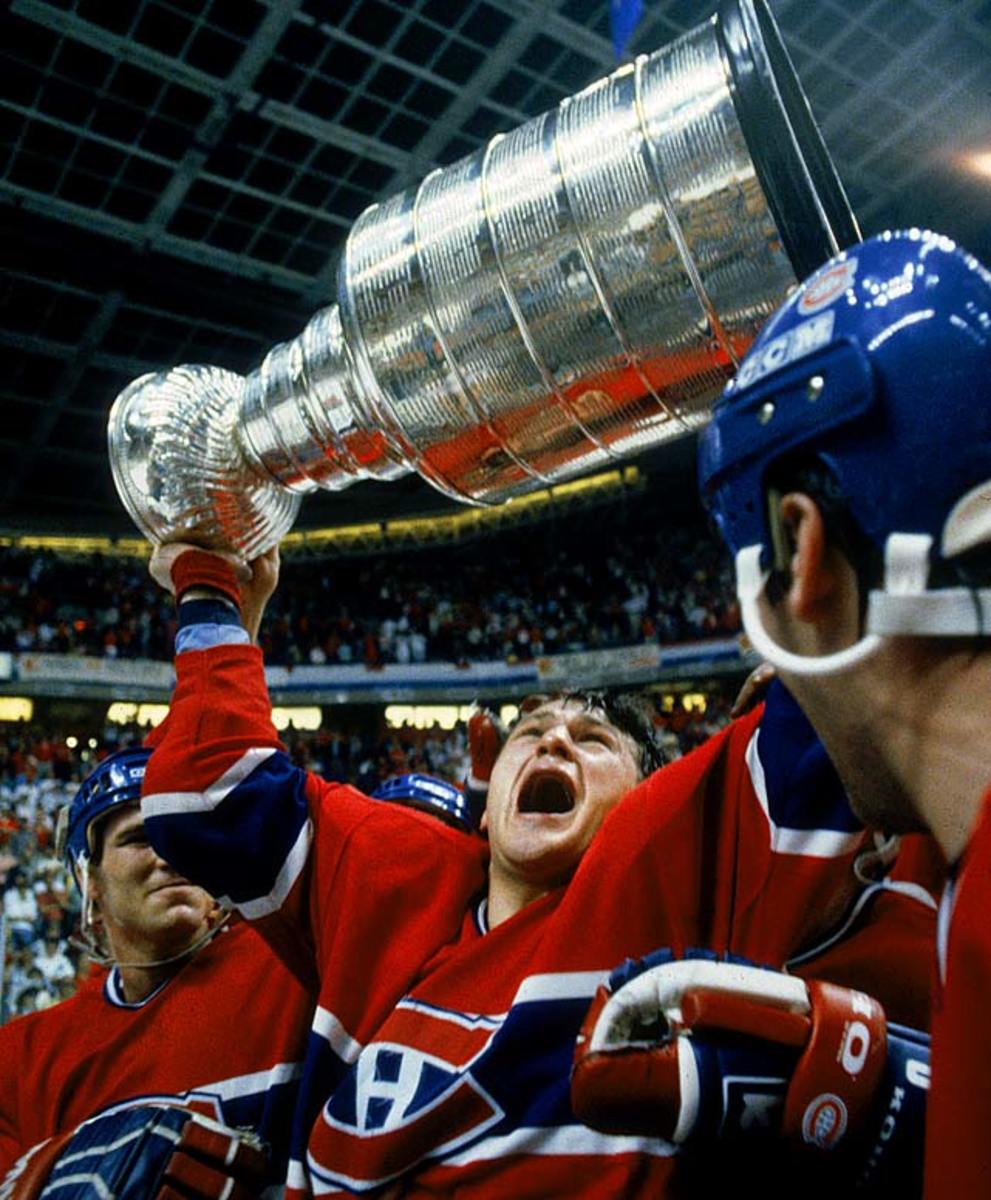
The feisty, villainous agitator, who was chosen in the second round of the 1983 draft, played in only 19 NHL games and scored a grand total of two goals and six points until the 1986 postseason arrived. Suddenly, Lemieux started coming up big -- 10 goals, including four game-winners, in 20 games as the Canadiens captured the Stanley Cup. That kind of clutch production would mark his 19 seasons in the NHL. In all, Lemieux scored 19 playoff-game-winning goals and won four Stanley Cups -- with the Canadiens, Devils (two) and Avalanche.
Mike Vernon
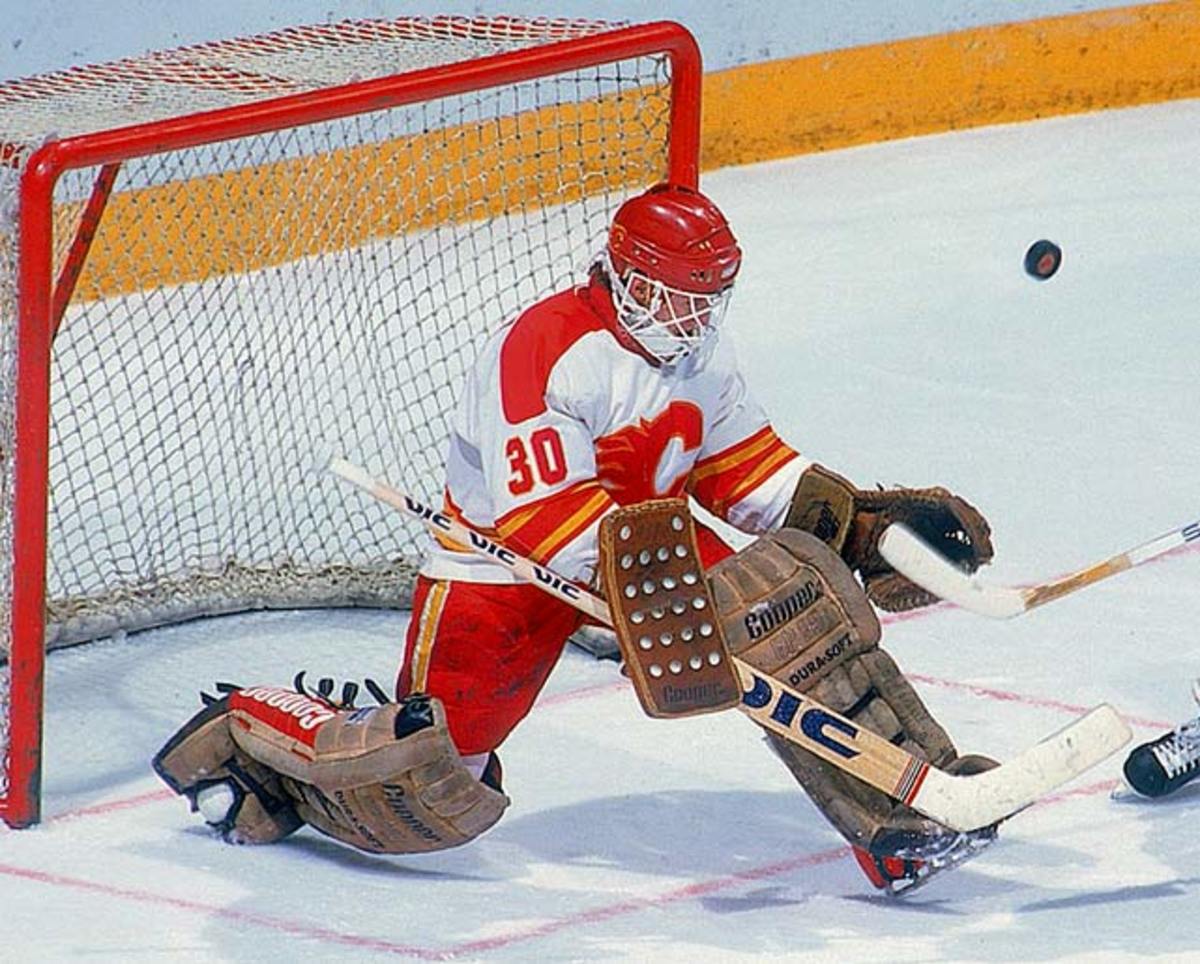
The rookie netminder, a second-round (56th overall) pick by Calgary in 1981, spent much of the 1985-86 season in the AHL and IHL (he appeared in 18 games for the Flames, going 9-3-3), but was given the starting role for the playoffs. He played very well (12-9, 2.93) while backstopping Calgary to its first appearance in the Stanley Cup Final. Alas, his opponent in the final was rookie Patrick Roy, who was busy building his own legend. Though the Flames went down in five games, Vernon had launched a long, topflight career that lasted 18 seasons and included the Conn Smythe Trophy in 1997 while playing for Detroit.
Pat Flatley
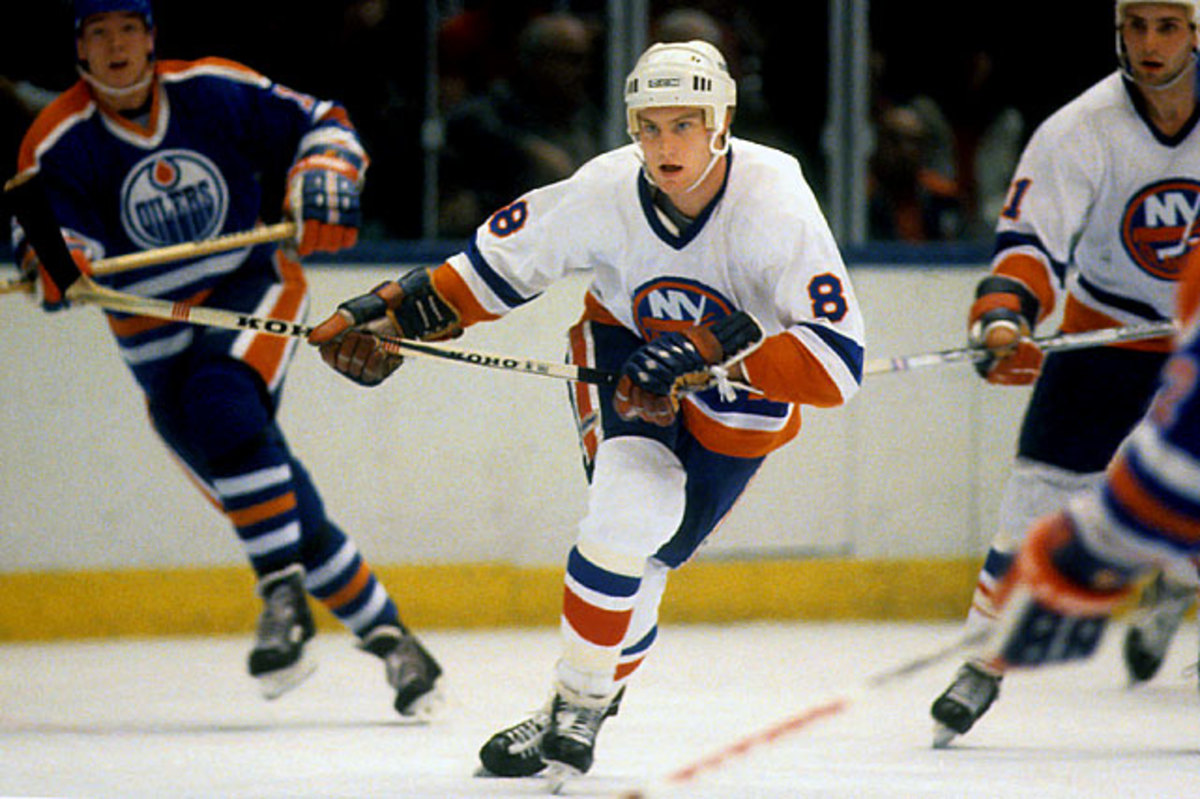
Overshadowed by his more flashy rookie teammate Pat LaFontaine (who had the more impressive brief regular season tune-up after the duo joined the Islanders off Team Canada and Team USA respectively), the tenacious, hard-working Flatley helped power the weary, battered team's drive for a fifth successive Stanley Cup. The checking winger, (a first round pick in 1982), scored nine goals and 15 points as the Isles reached the Stanley Cup Final, where they ultimately fell to Wayne Gretzky's Oilers in five games. LaFontaine would go on to reach the Hockey Hall of Fame, but Flatley enjoyed a very solid 14-year career in the NHL.
Ken Dryden
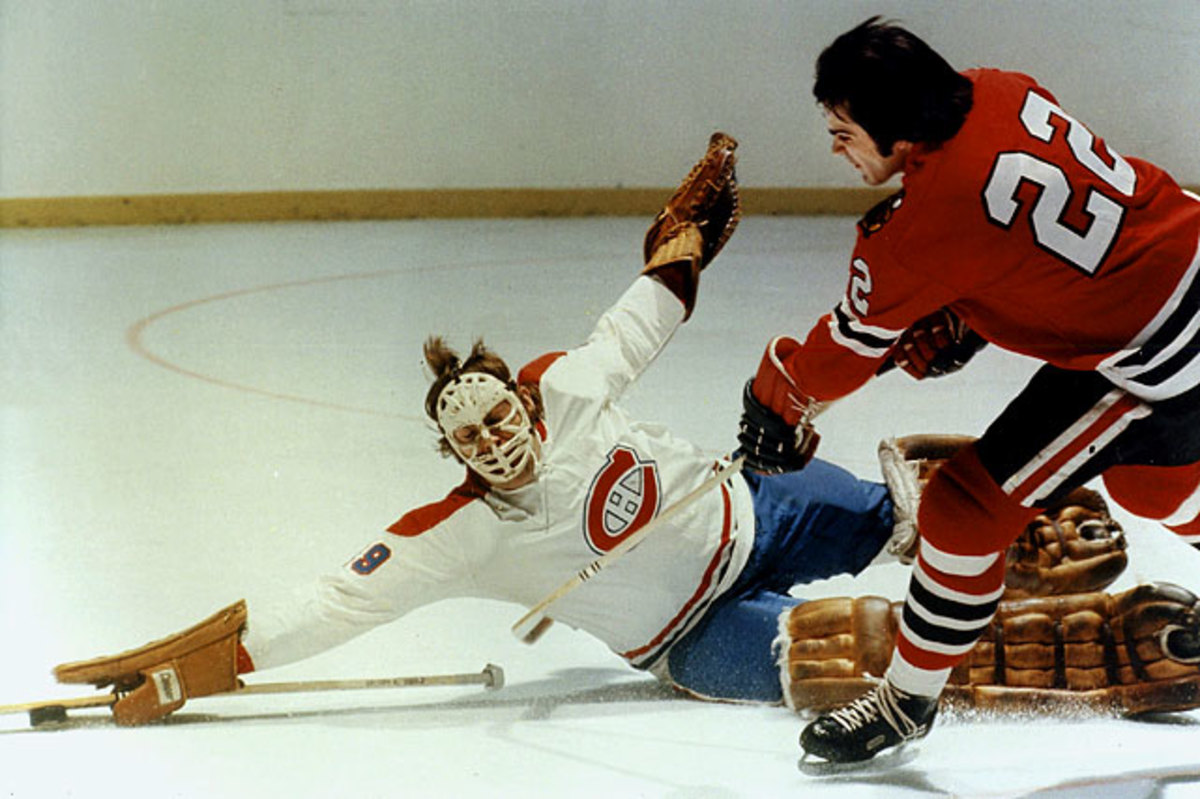
The Hall of Famer began his career in legendary style. After spending nearly the entire 1970-71 season in the AHL, Dryden saw action in six regular season games for the Canadiens, winning all six with a stingy 1.65 goals-against average. In a shocking move, the team tabbed him as its playoff starter instead of veteran incumbent Rogie Vachon, and Dryden played spectacularly while eliminating Bobby Orr's defending Stanley Cup champion Bruins in the first round, four games to three. When the Habs went on to win the Cup, Dryden (12-8, 3.00 GAA) was awarded the Conn Smythe Trophy. The following season, he won the Calder Trophy as rookie of the year.
Rod Gilbert

The Hall of Famer winger was a scoring star in the OHA, but his debut with the Rangers was delayed by a broken bone in his back, suffered on the last day of the 1959-60 regular season. He was later twice an emergency call-up to New York for one game in each of the next two seasons, and didn't get a serious chance to prove himself in the NHL until he was summoned for the Rangers' semifinal playoff series vs. Toronto. Gilbert made an instant splash by scoring five points in four games (the Rangers fell in six), presaging his making the team for good out of training camp the next season and scoring 31 points in 70 games as a rookie.
Mud Bruneteau
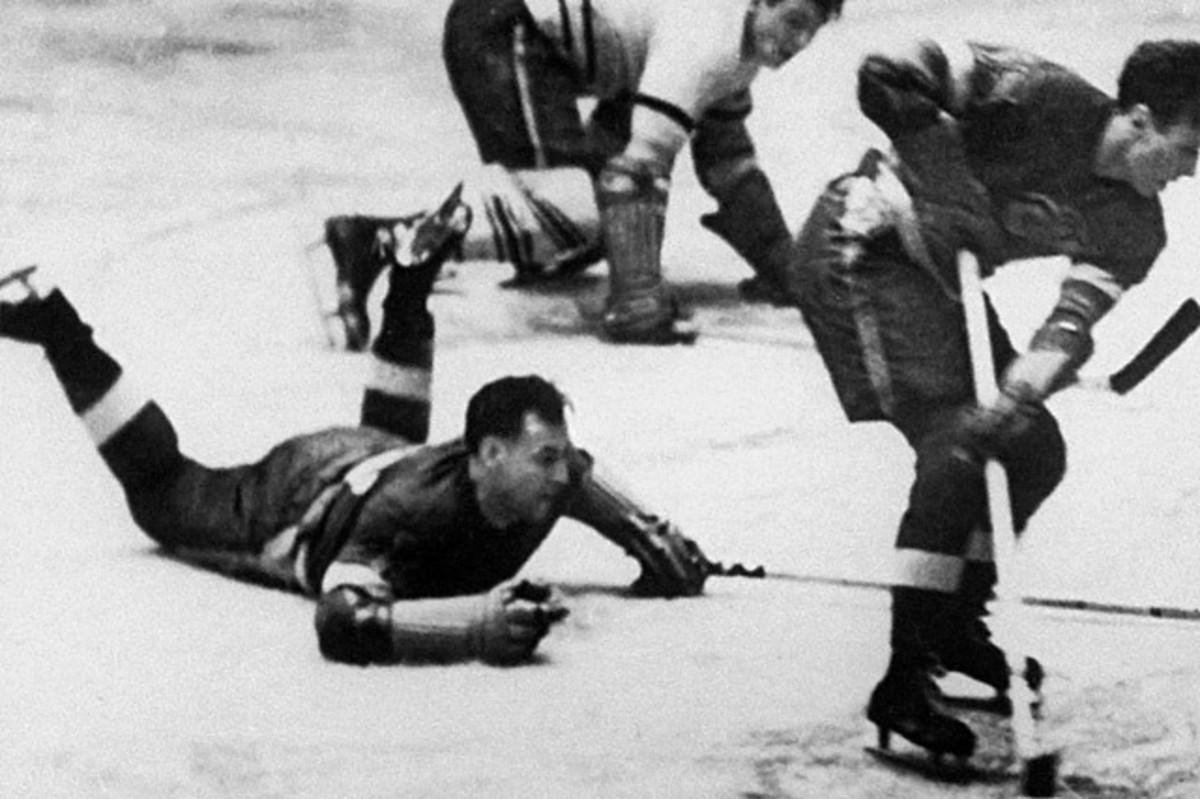
Fresh out of the IHL, two-way winger Modere "Mud" Bruneteau skated in 24 regular-season games for the Wings, scoring a mere two goals, and then earned himself a place in hockey legend in the playoffs. In Game One of Detroit's semi-final series against the Montreal Maroons, Bruneteau ended the longest playoff match in NHL history by scoring at 16:30 of the sixth overtime period. The Wings went on to win the Stanley Cup and Bruneteau's famous tally launched his solid, productive NHL career that lasted 11 seasons and included another Cup in 1943.
